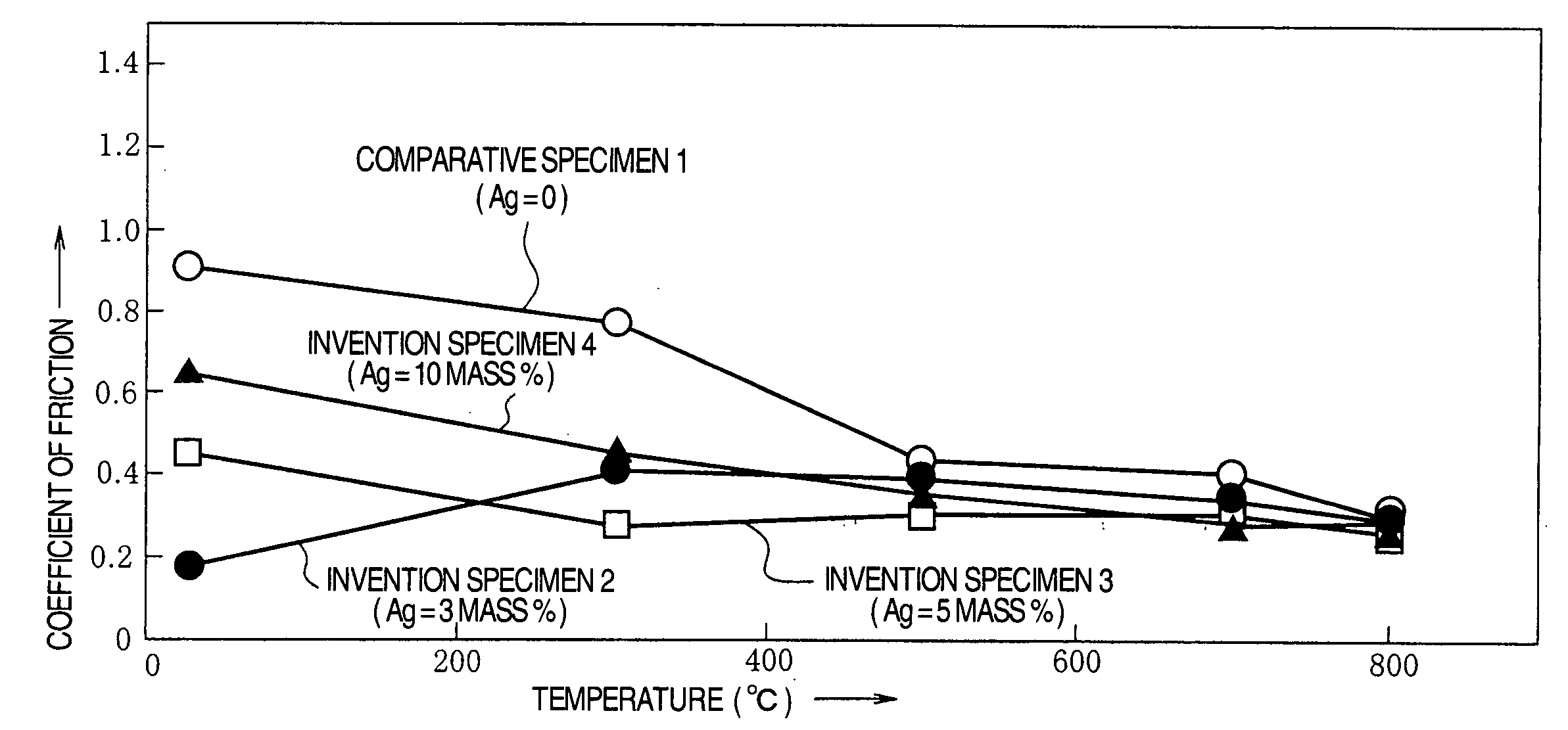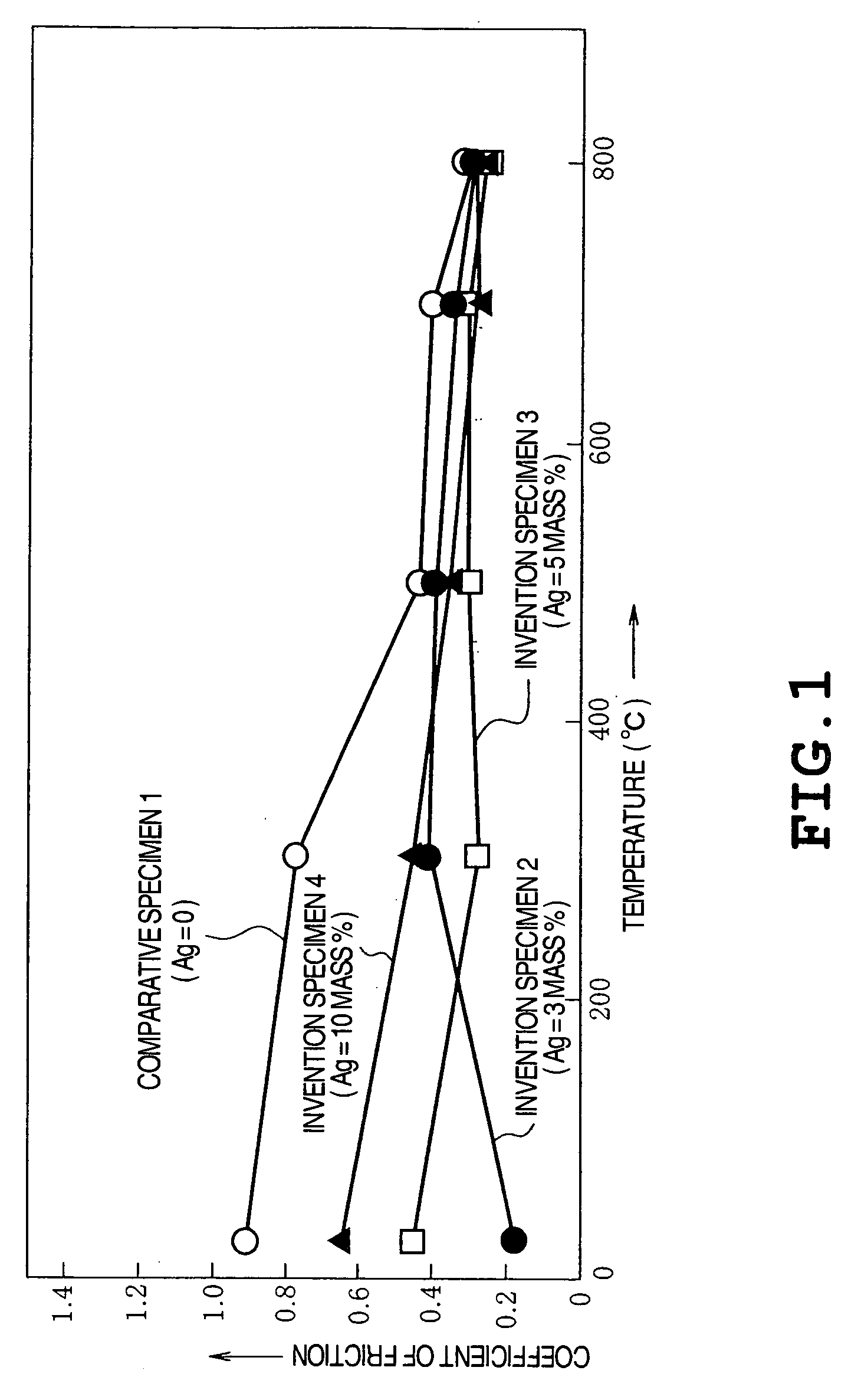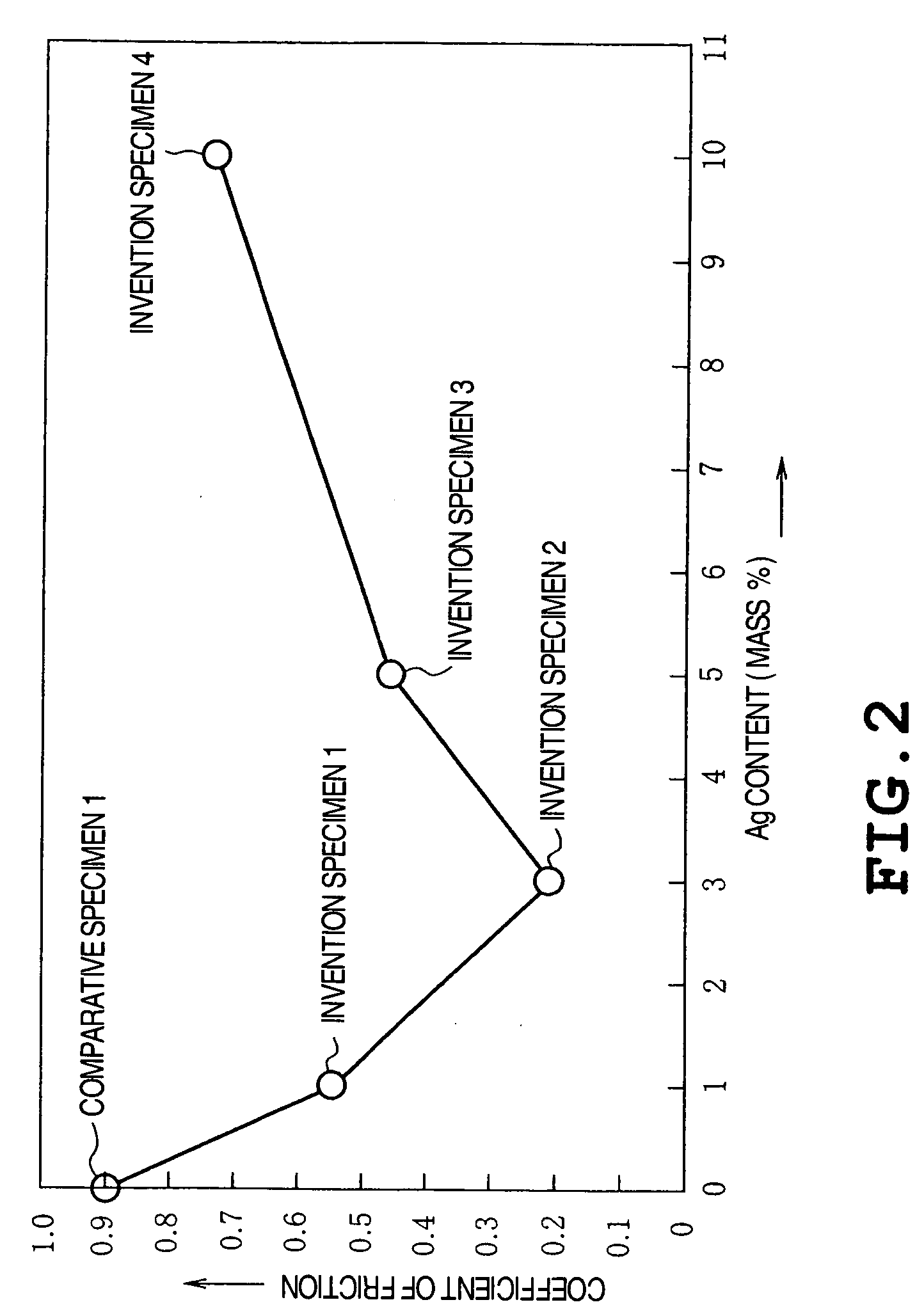High temperature sliding alloy
a high-temperature sliding alloy and alloy technology, applied in the direction of layered products, transportation and packaging, chemical instruments and processes, etc., can solve the problems of hard to form composite oxides on the surface of hard particles, achieve low friction coefficient, and achieve excellent durability, low frictional resistance of sliding system, and improve the wear resistance of slide bearing members and mating members.
- Summary
- Abstract
- Description
- Claims
- Application Information
AI Technical Summary
Benefits of technology
Problems solved by technology
Method used
Image
Examples
Embodiment Construction
[0034] Embodiments of the present invention will be now described below.
[0035] The following powders were prepared as a raw powder for preparing test samples of Invention Specimens 1 to 4 and Comparative Specimen 1 shown in Table 1 described below.
[0036] (1) Pure Ni powder: a particle size of −(minus) #250 mesh (63 μm or smaller)
[0037] (2) Fe—Cr alloy powder: a particle size of −(minus) #250 mesh (63 μm or smaller)
[0038] (3) Pure Ag powder: a particle size of −(minus) #250 mesh (63 μm or smaller)
[0039] (4) Co—Mo—Cr—Si alloy powder as hard particle: a particle size of −(minus) #250 mesh (63 μm or smaller)
[0040] The above described Fe—Cr alloy powder has a composition of 44.5 mass % Cr, 17.6 mass % Ni, 1.6 mass % Si, 4.2 mass % Mo, 0.6 mass % Mn and the balance being Fe.
[0041] In addition, the above described Co—Mo—Cr—Si alloy powder has a composition of 28.5 mass % Mo, 8.5 mass % Cr, 2.5 mass % Si and the balance being Co.
[0042] Then, the above described pure Ni powder, an Fe...
PUM
| Property | Measurement | Unit |
|---|---|---|
| Temperature | aaaaa | aaaaa |
| Fraction | aaaaa | aaaaa |
| Fraction | aaaaa | aaaaa |
Abstract
Description
Claims
Application Information
 Login to View More
Login to View More - R&D
- Intellectual Property
- Life Sciences
- Materials
- Tech Scout
- Unparalleled Data Quality
- Higher Quality Content
- 60% Fewer Hallucinations
Browse by: Latest US Patents, China's latest patents, Technical Efficacy Thesaurus, Application Domain, Technology Topic, Popular Technical Reports.
© 2025 PatSnap. All rights reserved.Legal|Privacy policy|Modern Slavery Act Transparency Statement|Sitemap|About US| Contact US: help@patsnap.com



